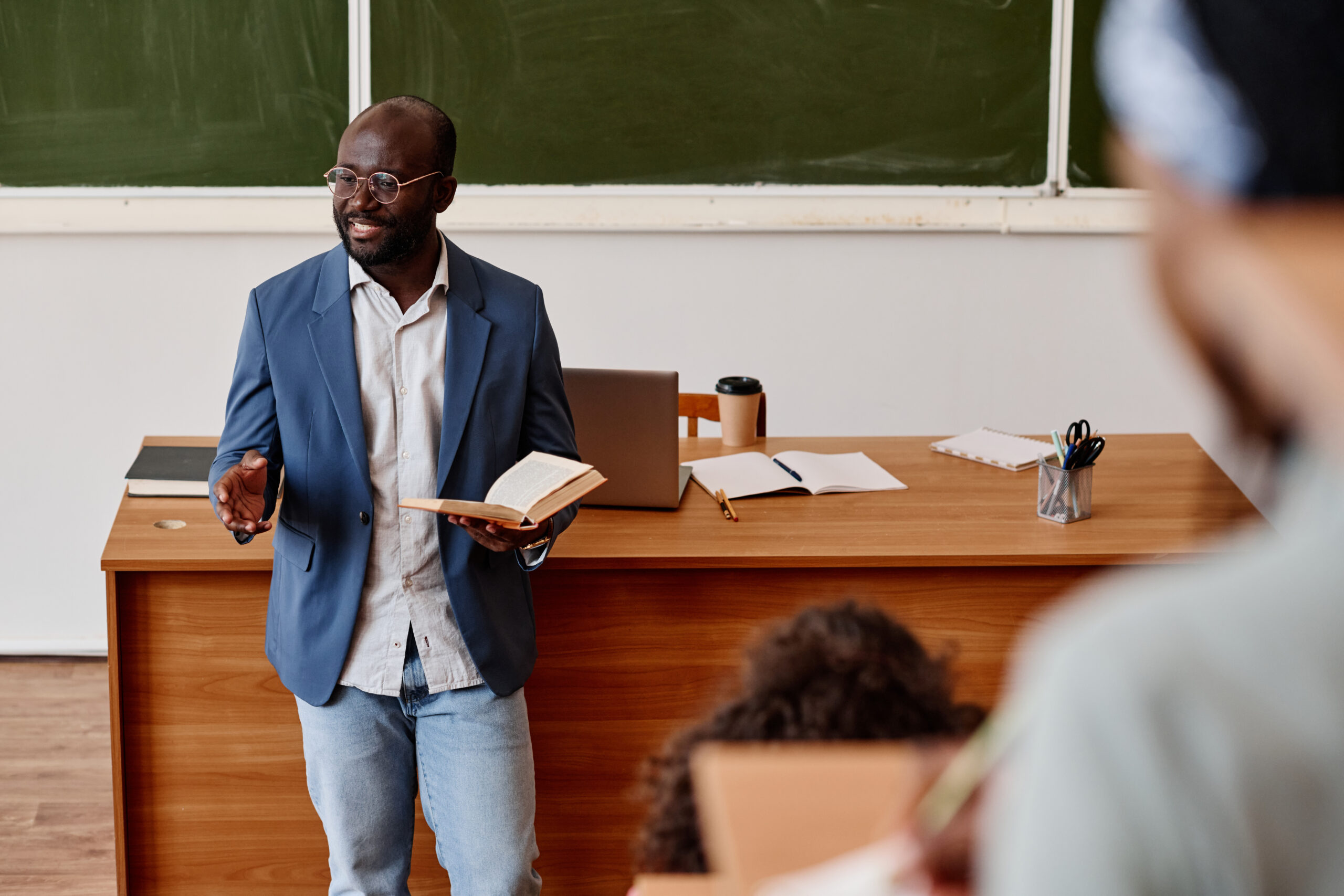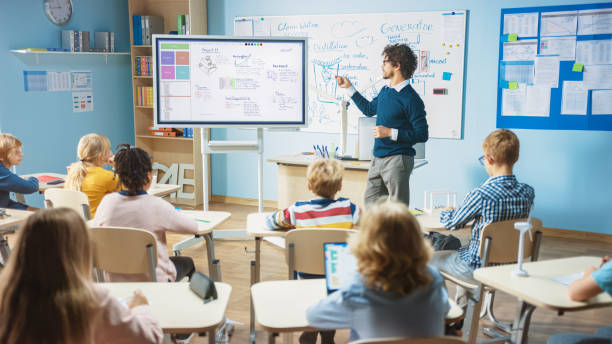Get Top Results with Primary Science Tuition Singapore from Experienced Tutors
Get Top Results with Primary Science Tuition Singapore from Experienced Tutors
Blog Article
Discovering the Various Teaching Approaches in Primary Science Education Today
Inquiry-based learning, hands-on experiments, and the integration of modern technology are redefining how teachers engage young minds. Furthermore, collaborative approaches and set apart direction are being utilized to provide to the diverse requirements of trainees, improving both engagement and understanding.
Inquiry-Based Discovering
Inquiry-Based Understanding (IBL) is an instructional strategy that motivates pupils to explore scientific concepts via questioning, examination, and hands-on experimentation. This technique emphasizes the function of pupils as active participants in their understanding, promoting important reasoning and analytic abilities. By involving with real-world questions, students become curious and motivated, which improves their understanding of scientific concepts.
In IBL, instructors work as facilitators, directing trainees as they browse their questions rather than supplying info directly. This student-centered method permits differentiation, accommodating various finding out paces and styles. Students develop skills in formulating hypotheses, developing experiments, and assessing information, which are important for scientific proficiency.
Additionally, IBL fosters collaboration among trainees, urging them to share findings and ideas. This collective questions advertises social skills and a sense of neighborhood within the classroom. The procedure of questions urges resilience, as students learn to welcome failure as a stepping rock towards understanding.
Hands-On Experiments
Hands-on experiments are an essential element of effective scientific research education and learning, matching the principles of inquiry-based learning. These experiments permit trainees to engage straight with scientific principles, fostering a much deeper understanding through experiential understanding. By controling materials and observing end results, young learners can realize abstract theories in tangible methods.
Such tasks promote essential thinking and analytic skills, as pupils hypothesize end results, conduct experiments, and examine outcomes. This procedure motivates them to ask concerns, improve their understanding, and establish a clinical state of mind. Moreover, hands-on experiments can be tailored to diverse discovering styles, guaranteeing that all pupils have the opportunity to engage meaningfully with the web content.
In addition, hands-on experiments frequently motivate collaboration among peers, advertising teamwork and communication abilities. Functioning in teams makes it possible for students to share ideas, discuss findings, and learn from each other, which enhances their total educational experience.
Incorporating hands-on experiments into the primary science curriculum not just improves the finding out atmosphere yet additionally grows a long-lasting passion in science. By proactively taking part in their education, pupils are most likely to establish an enthusiasm for scientific query that prolongs past the classroom.

Technology Assimilation
Incorporating technology into key scientific research education has actually come to be significantly essential in promoting pupil engagement and enhancing finding out end results. The use of digital devices, such as interactive simulations, virtual labs, and instructional software, provides students with opportunities to explore clinical principles in innovative methods. These resources help with a deeper understanding of complex topics by allowing students to picture and control variables that would be impractical in a traditional class setup.
Additionally, modern technology assimilation motivates personalized finding out experiences. Pupils can advance at their own pace, taking another look at tough principles with multimedia resources, which cater to different learning styles. This adaptability not only supports specific growth yet likewise cultivates a feeling of autonomy in students.
Furthermore, technology acts as a bridge to real-world scientific research, connecting pupils with present research and professional payments. Access to clinical journals and on the internet data sources widens trainees' perspectives on clinical query and cultivates critical believing abilities.
Collaborative Discovering
Collaborative knowing plays an essential role in primary scientific research education by promoting teamwork and interaction abilities amongst students. This approach urges learners to collaborate, share knowledge, and engage in analytic, which boosts their understanding of scientific concepts. By getting involved in group activities, trainees discover to express their ideas, listen to diverse point of views, and bargain options, all of which are necessary abilities in both scholastic and real-world contexts.

Study suggests that collaborative understanding can bring about enhanced inspiration and interaction in scientific research subjects, as pupils find satisfaction in shared experiences (primary science tuition Singapore). In addition, this technique prepares students for future collective undertakings, equipping them with the abilities necessary for reliable teamwork in higher education and learning and specialist atmospheres. Eventually, embracing collective understanding in key scientific research education and learning can significantly enhance the understanding experience and promote a deeper understanding of scientific query
Differentiated Direction

Distinguished guideline can manifest in numerous ways, such as differing the web content, processes, or products of discovering. As an example, educators might use tiered assignments that offer varying levels of intricacy, permitting check my reference pupils to function at their corresponding preparedness degrees. Additionally, adaptable organizing methods can assist in partnership among students with various capabilities, promoting peer knowing.
Analysis plays a crucial role in this approach, as it educates direction and aids educators understand each pupil's special requirements. Developmental analyses, such as observations and tests, can lead educators in adjusting their techniques to improve learning results. primary science tuition Singapore. Ultimately, by implementing differentiated direction in primary scientific research education, educators can cultivate a much more efficient and fair knowing setting, empowering all students to reach their complete potential in recognizing scientific phenomena
Final Thought
In summary, the diverse mentor strategies in primary scientific research education, consisting of inquiry-based understanding, hands-on experiments, innovation combination, collaborative understanding, and distinguished guideline, jointly add to a much more efficient understanding environment. These techniques promote critical reasoning, analytical skills, and a much deeper understanding of clinical principles. By applying these strategies, educators can create encouraging and interesting classrooms that resolve the different requirements of students, ultimately cultivating a long-lasting passion in scientific research and boosting academic accomplishment.
Inquiry-Based Discovering (IBL) is a pedagogical method that motivates pupils to explore scientific principles via doubting, investigation, and hands-on trial and link error.Collective knowing plays an essential role in key science education and learning by cultivating synergy and communication skills among trainees.Research shows that joint discovering can lead to enhanced inspiration and interaction in science subjects, as pupils discover pleasure in shared experiences.In cultivating an inclusive learning setting, distinguished instruction arises as an essential strategy to suit the diverse requirements and capabilities of students in main science education and learning. Inevitably, by applying separated instruction in main science education and learning, educators can cultivate a much more fair and reliable learning setting, empowering all trainees to reach their full potential in comprehending clinical phenomena.
Report this page